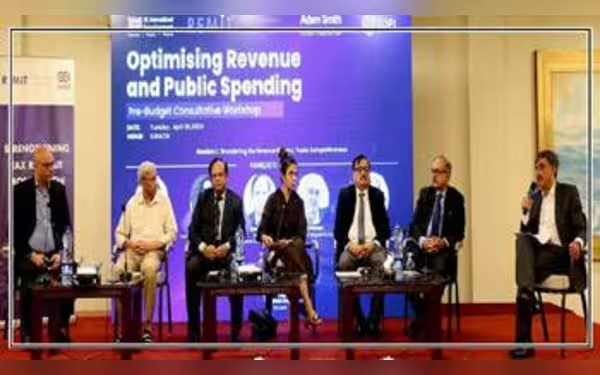Thursday, July 4, 2024 06:10 PM
REMIT Programme advocates tax reforms for Pakistan's economic growth
- Experts stress need for tax regime and regulatory reforms for macroeconomic stability
- Discussion highlights challenges in tax collection and disproportionate tax burden on the poor
- Recommendations include privatisation policy, regulatory streamlining, and trust-building for compliance
 Image Credits: nation_pk
Image Credits: nation_pkStakeholders in Lahore urge Pakistani government to reform tax regime and regulations for sustainable economic growth and fair tax distribution.
In a recent pre-budget stakeholder consultation in Lahore, experts emphasized the need for the Pakistani government to address issues related to the tax regime and regulatory processes to ensure macroeconomic stability. The consultation, organized by the Sustainable Development Policy Institute (SDPI) with support from the REMIT Programme, focused on optimizing revenue and public spending for inclusive growth.
Nagham-e-Tehniat Jerral, Governance Adviser and Tax Lead of REMIT, highlighted the potential of Pakistan's economy, citing factors such as its youthful population, strategic location, diaspora, and women's role in driving economic growth. The World Bank's report suggested that Pakistan could achieve significant economic growth with the right interventions and reforms.
The discussion also touched upon challenges like insufficient tax collection, with the poorest segment of society bearing a disproportionate tax burden compared to the wealthiest. Participants stressed the importance of political will in implementing reforms and the need for a fairer tax system to promote compliance.
Recommendations included the development of a coherent privatisation policy, streamlining regulatory processes to attract investments, and enhancing export processing zones' potential. The stakeholders highlighted the importance of consistent taxation policies and building trust among taxpayers to foster a culture of compliance.
In conclusion, the consultation underscored the urgency of addressing these issues to drive sustainable economic growth and ensure a fair distribution of the tax burden in Pakistan.













